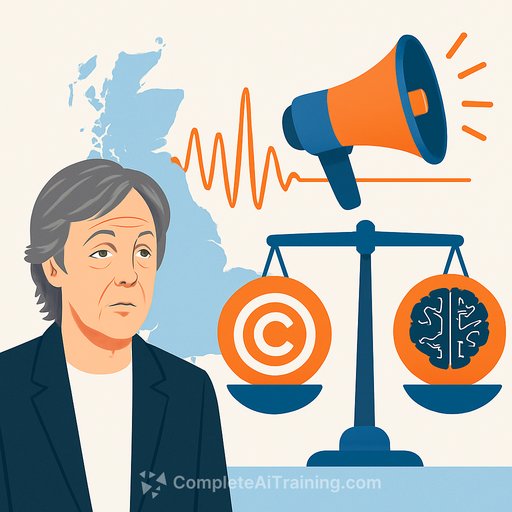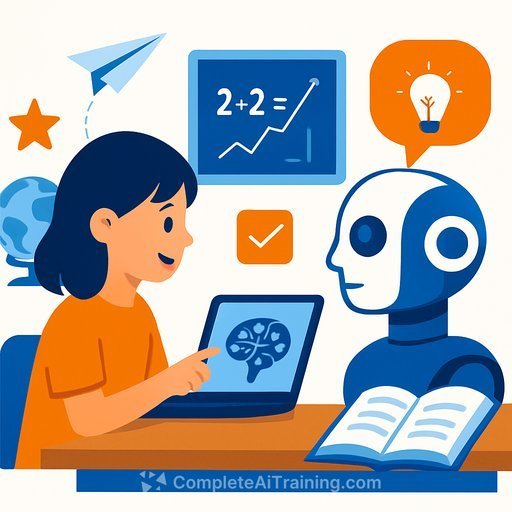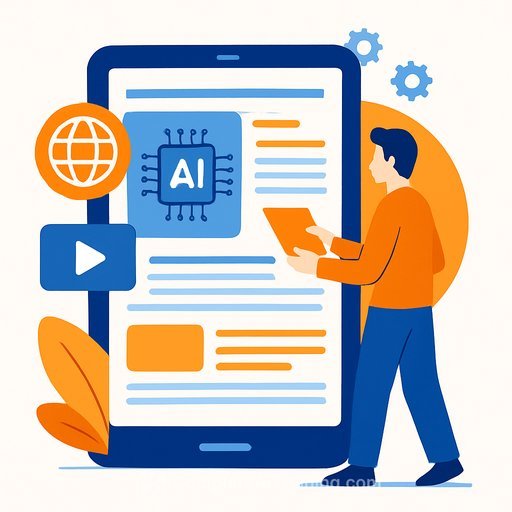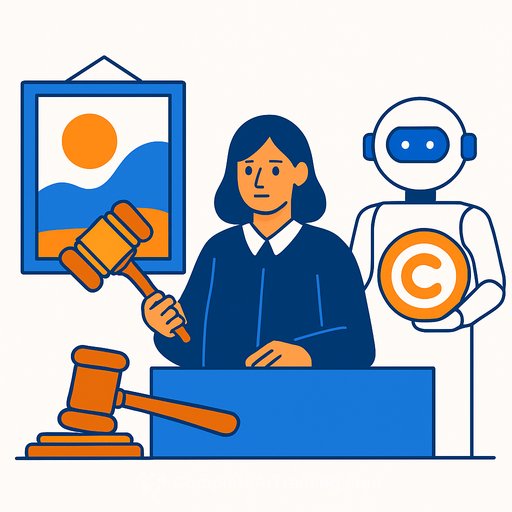Paul McCartney's silent track is a loud warning to UK creatives
Paul McCartney is releasing a two-minute-and-45-second silent track to protest proposed changes to UK copyright law that would widen exemptions for AI companies. His piece, "Bonus Track," captures the sound of an empty studio-just clicks and air-and appears on "Is This What We Want," a silent compilation featuring more than 1,000 artists including Hans Zimmer, Kate Bush, Damon Albarn, Annie Lennox and Jamiroquai.
The message is simple: silence speaks for creators who may lose control of their work. If the proposal lands as described by campaigners, AI firms could train on copyrighted text, images and music unless creators actively opt out.
What's at stake
The proposed text and data mining exemption flips a long-standing principle. Instead of asking permission first, it pushes creators to opt out after the fact. That shift could funnel value from British artists to large AI companies that profit at scale, while creators see thinner royalties and fewer licensing deals.
Backlash is growing. Earlier this year, more than 400 writers and musicians-including Elton John, Ed Sheeran, Dua Lipa, Sting, Kazuo Ishiguro and Helen Fielding-signed a letter calling the plans a giveaway to Big Tech. McCartney, 83, has warned that poorly policed AI could hollow out opportunities for young composers and writers.
The government's position
Ministers are balancing two forces: a creative sector worth £125 billion a year and American AI firms investing more than £30 billion, mostly in datacentres. A new legal framework isn't expected in Parliament until 2026. In the meantime, the government is partnering with OpenAI, Google and Anthropic to accelerate AI adoption across the economy.
Baroness Beeban Kidron has criticised the approach, arguing it tries to please both sides and satisfies neither. A government spokesperson says the goal is a workable compromise that protects creators while supporting innovation.
Why the silent album matters
Silence is the protest. It's a reminder that without consent and fair terms, creative work disappears into training data-unseen, unpaid, and uncredited. The compilation forces a simple question: who gets to set the rules for using human-made work to build machine-made products?
What you can do now (practical moves)
- Assert your rights in writing: Add "no AI training" clauses to contracts, licenses and briefs. Require written consent for any machine training or dataset use.
- Use technical blocks: Add bot blocks in robots.txt (e.g., for GPTBot) and metadata directives where relevant. Guidance: OpenAI GPTBot documentation.
- Keep your licensing clean: Register works, use identifiable metadata, and prefer platforms that offer AI-use controls and transparent reporting.
- Opt-out where possible: If a service offers an opt-out for training, use it. Document it. Screenshot confirmations.
- Price the risk: If a client requests AI training rights, quote a separate buyout fee. Don't give it away by accident.
- Join collective efforts: Unions, rights groups and collecting societies amplify your leverage and keep you updated as the policy shifts.
- Monitor misuse: Set up alerts for your name and key phrases. Track unusual reposts or derivatives that look model-generated.
Stay informed
Follow official updates from the UK Intellectual Property Office: UK IPO. Policy may change quickly before 2026, and details on opt-outs and enforcement will matter more than headlines.
Level up your AI fluency (without giving up control)
Knowing how AI tools work helps you protect your catalogue and negotiate better terms. If you want practical, job-focused training built for creatives, explore: AI courses by job at Complete AI Training.
Bottom line
McCartney's silent track isn't a stunt-it's a signal. Consent, credit and compensation should be the default, not the opt-out. Until the law catches up, treat your rights like your masters: protect them, price them and put your terms in writing.
Your membership also unlocks:





